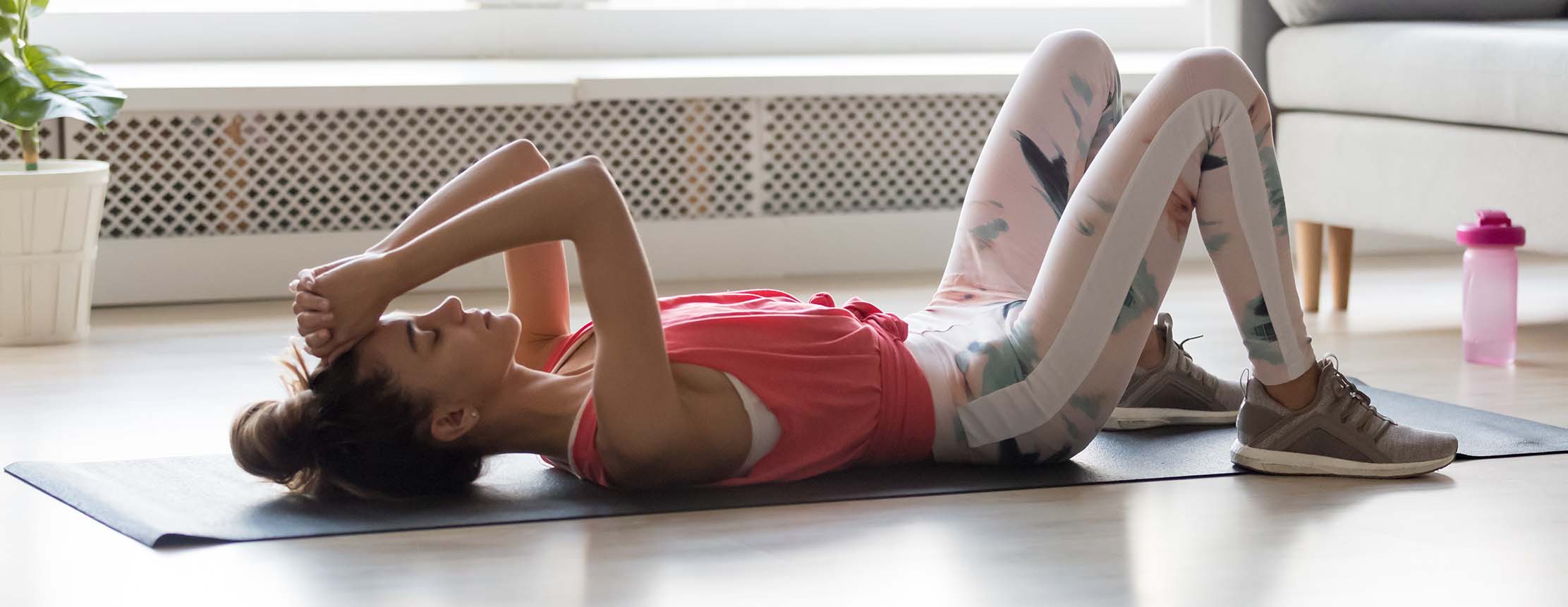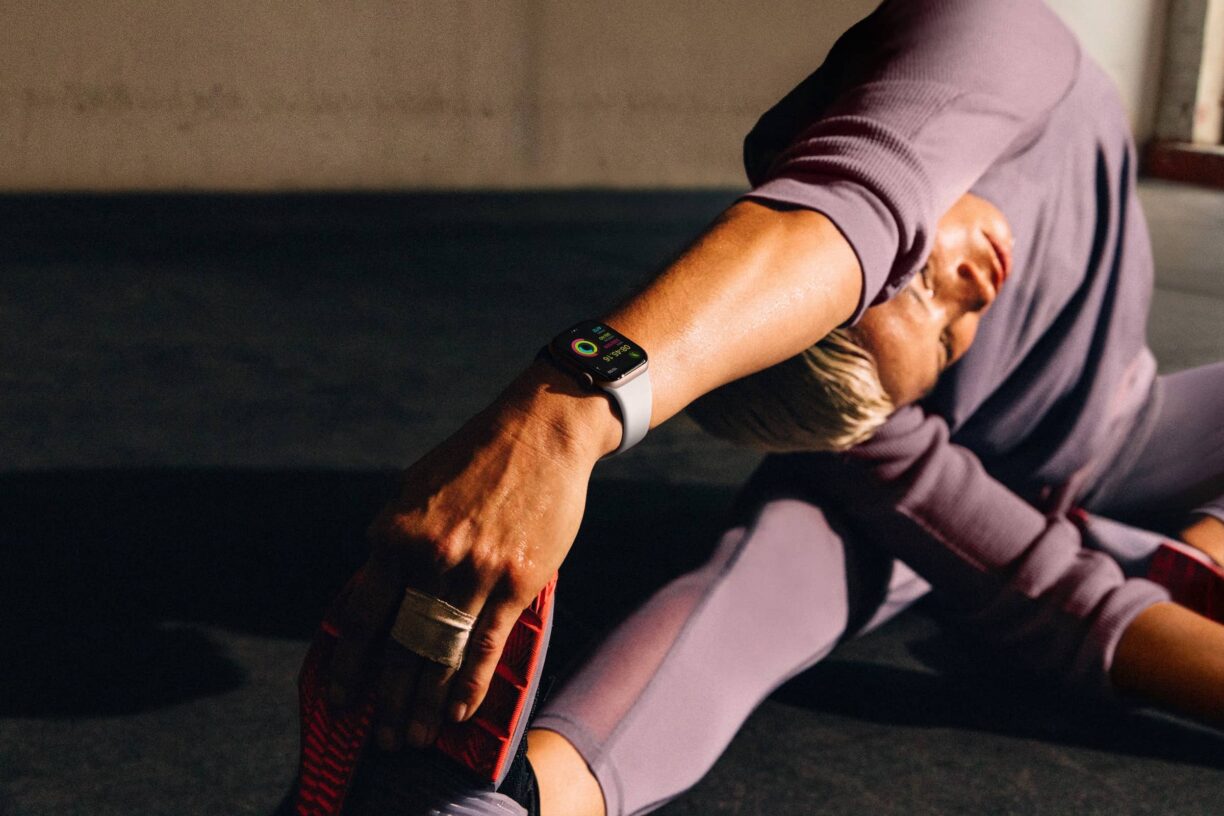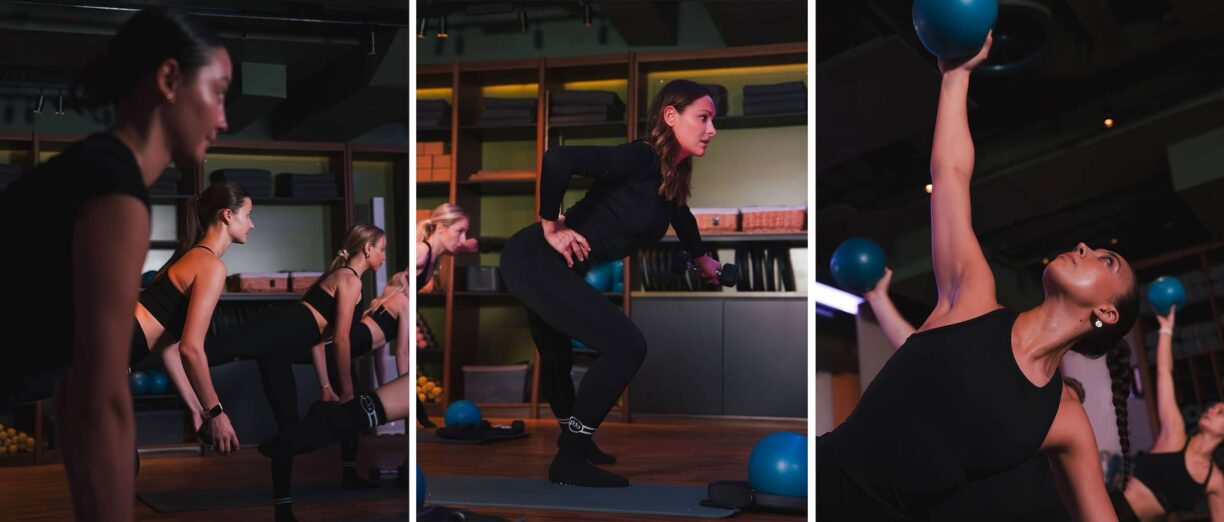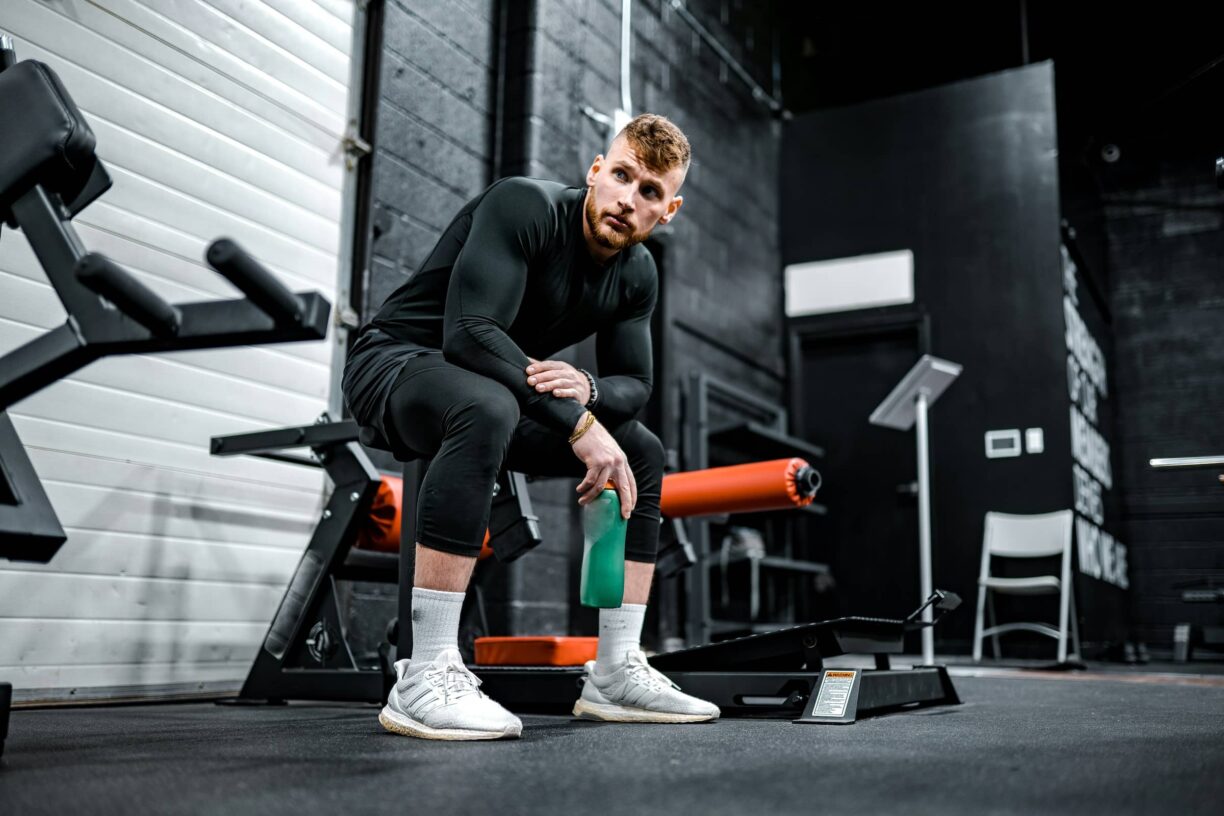New research by PureGym has revealed a worrying lack of fitness in people across the UK, with half of Brits (50%) admitting that they struggle to get up from the sofa, as well as struggling with other day-to-day tasks, such as walking uphill, and basic physical exercise.
With previous research showing that a third of the population (34%) don’t exercise weekly and that almost a quarter (23%) don’t see themselves as healthy from any point of view, PureGym has taken a closer look at how this impacts the nation and detailed the small steps people can take to become healthier.
Working with PureGym Portsmouth PT Phil Carpenter to create a set of benchmarks that outline an ideal basic level of fitness applicable to people of all ages and genders, more than 2,000 people were involved in the study.
Analysing seven basic exercises (tricep dips, push-ups, squats, slow squats, deep squats, a 1.5 mile (2.4km) run and a toe touch), the results reveal many fall short of these ‘base level’ benchmarks, with day to day movement affected as a result.
On Average, 1 in 3 Are Unable to Perform Basic Bodyweight Exercises
Across each of the exercises outlined by Phil, an average of a third of the population are unable to complete any of them, with running proving the most difficult. Nearly 4 in 10 people (38%) stated that they would be unable to complete a 1.5-mile run, regardless of how much time they had to do so.
It’s a similar story when it comes to strength, as a third (34%) of people are unable to complete a single tricep dip, with 5.63 being the average number of reps completed – which is the minimum benchmark expected for someone aged 60 or above.
Meanwhile, a quarter of the population (27%) are unable to complete a single squat, with the average person only able to complete 9.58 squat reps before failure – which according to benchmarking, is equivalent to a ‘poor’ effort for men aged over 56 years old, or women over 36.
| Exercise | % who are unable to complete |
| 1.5 mile (2.41km) run | 38% |
| Tricep dips | 34% |
| Push ups | 32% |
| Squats | 27% |
However, according to Phil, these results aren’t surprising, as modern-day living makes it harder to stay active.
He comments: “The average person who works in an office spends most of their time sat or laid down. We wake up after a night of lying down, sit down to eat breakfast, drive to work, get a lift to the right floor, and sit at a desk until 5 pm, often with lunches spent at our desks.
Even for those who exercise after work, a large portion of the evening will still be spent sitting down. By the time the weekend comes around, the average person is exhausted, and with a long list of chores like cleaning, food shopping to do, as well as simply recovering from the working week, getting to the gym can seem impossible.
“Sedentary lifestyles have a huge impact on our mobility. When we do not use our muscles in the intended way, we lose range of motion and strength.
Sitting down all day can cause tight hamstrings, weak hip flexors and glutes, weak upper back muscles, poor posture, and more.”
More Than Half Struggle With Walking Up The Stairs
In addition to looking at the key exercises we should all be able to complete, PureGym also analysed how challenging certain day-to-day activities can be for some people.
Stephen Rowe, Chief Marketing Officer at PureGym, explains: “Working out regularly isn’t feasible for every person at every stage of their life, but we should all aim to have the ability to move about our daily lives with ease. We wanted to understand if this is something people struggle with, and what small steps can be taken to improve this if so.”
In addition to the 50% of us who struggle to get up from a chair or sofa, more than half (55%) said that they get out of breath when walking up a flight of stairs, which is a huge number considering how many of us need to walk up and down stairs on a regular basis in our own homes.
Worryingly, it’s those aged 16-24 who find climbing stairs the most difficult, with nearly three-quarters (74%) admitting to struggling with this, in comparison to just 46% of those aged over 55.
The Day-to-Day Movements People Struggle With The Most
| Rank | Activity | % who struggle |
| 1. | Walking up a gradient (eg. A hill) | 69% |
| 2. | Getting up from sitting on the floor | 64% |
| 3. | Getting out of breath walking upstairs | 55% |
| 4. | Getting up from a chair/sofa | 50% |
| 5. | Walking a short distance (eg. To the local shops) | 47% |
69% of people cite ‘poor flexibility’ as being a struggle in their daily lives, while 68% struggle with stiff or tight muscles. This is confirmed in the study’s toe touch tests, with 4 in 10 (44%) unable to successfully touch their toes.
Often viewed as a barometer of a person’s flexibility, 23% are only able to reach their sock line, or less.
Phil says: “Mobility is our bodies’ secret superhero, one that we don’t realise is there until we begin to lose it as we age. Having good mobility and flexibility allows us to move through a bigger range of motion, with less risk of injury.
“Yoga, tai chi, and pilates are great ways to improve mobility and flexibility, but even something as simple as getting up, moving, and stretching everyone 1-2 hours that you are inactive, will make a difference.”
How Can People Turn Their Fitness Around?
For anyone struggling with day-to-day movement and looking to improve their physical fitness, Phil recommends starting by following these three simple tips:
- Set small, achievable goals: “Start by setting SMART goals and recording these down. It’s better to start with small, sustainable changes and build on these. Something as simple as having a step goal or working out twice a week is a great place to start”.
- Aim to do some form of physical activity every day: “Whether it’s walking, gardening, housework, or more vigorous exercise such as gym based or sports such as swimming, tennis, we need to be raising our hearts rates within safe limits, at least twice a week to benefit from reducing the risk of chronic diseases and sickness such as heart disease, stroke.”
- Become more active throughout the day: “Lifestyle changes are just as, if not more, important, as working out. If you work out for 45 minutes a day but spend the rest of the day completely inactive, you’re fighting a losing battle! Small ways to increase activity and improve mobility include taking the stairs instead of the lift, walking while talking on the phone, and sitting on the floor instead of the sofa.”
Stephen Rowe commented on the research: “We know from our previous research that nearly a quarter of people in the UK do not consider themselves to be healthy, and it’s worrying to see that this translates to struggling with day-to-day movements like getting up from the sofa, especially as these kinds of movements get more difficult with age for many people.
Not everyone needs or wants to squat or bench press heavy, but everyone needs to be able to move about their life independently for as long as possible.
“The good news is it doesn’t have to be difficult, time-consuming, or expensive to improve basic fitness. Walking more, stretching, and doing bodyweight exercises throughout the day are accessible ways to improve mobility and cardio fitness.
To view the full findings of the study, including insight and critique from PT Phil on our most common form errors when completing key movements, visit: https://www.puregym.com/blog/how-fit-is-the-population/





